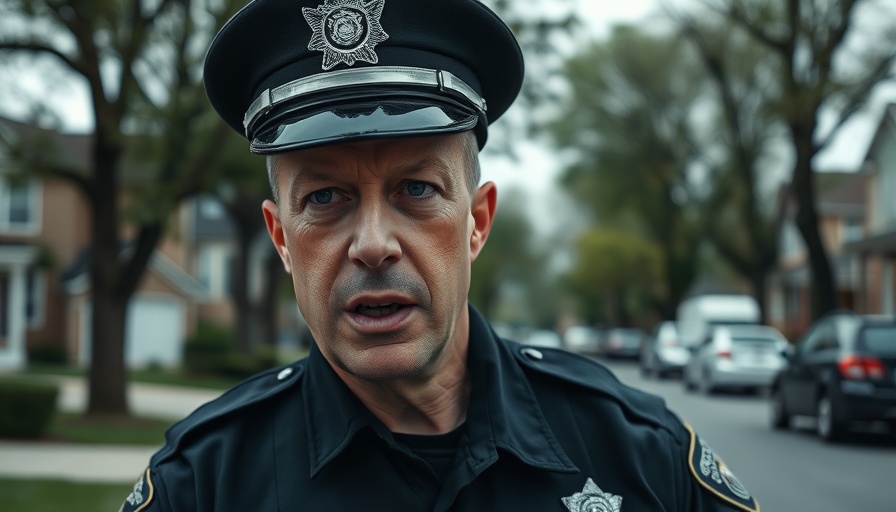
Dayton Police Sergeant’s Fight for Reinstatement: A Community Concern
In recent months, a significant legal battle has unfolded in Dayton, Ohio, as a formerly dismissed police sergeant, Joseph Said, seeks to reclaim his position. After being terminated from the Dayton Police Department (DPD) for alleged misconduct, which includes unlawful restraint and two counts of misconduct, Said was recently ruled to have been wrongfully terminated by an arbitrator. This ruling has reignited discussion about the consequences of police actions and the fair treatment of officers within the law enforcement system.
The video 'Sergeant fired after conviction ruled wrongfully terminated, DPD to appeal' sheds light on a controversial case in Dayton, prompting a deeper analysis of police accountability and community trust.
Understanding the Misconduct Charges
Said’s journey began last year when he was placed on administrative leave after serious allegations surfaced, linking him to misconduct involving at least three victims dating back to 2021. Despite being found guilty of his charges and initially losing his job, the Fraternal Order of Police argues that the dismissal may not have been justified. Their claim hinges on the belief that all procedural guidelines for complaints against officers were not adequately followed, highlighting the complexities of law enforcement regulations.
The Role of the Fraternal Order of Police
The Fraternal Order of Police has stepped in to represent Said, pushing for his reinstatement after the arbitrator’s decision in March. The organization is tasked with navigating a difficult path: balancing the accountability expected from police officers with the rights and protections afforded to them under law. They argue that the disciplinary actions taken were overly harsh and did not consider the full context of the allegations. This situation raises vital questions about how disciplinary processes are conducted within police departments.
The Community’s Reaction
Local residents and those following the case are expressing mixed feelings. Some support Said, seeing him as a victim of a flawed system, while others are wary of reinstating someone convicted of criminal charges. The discussion reflects deeper concerns about the accountability of police officers and their impact on community safety. Community sentiments boil down to a fundamental question of how to uphold both integrity within law enforcement and the rights of officers.
What’s Next for the Dayton Police Department?
As of now, the DPD has 90 days to appeal the arbitrator’s decision. Chief Kamran Afzal has expressed disappointment over the ruling, emphasizing that the accusations against Said deserved more consideration in the decision-making process. The appeal process will be critical as it not only impacts Said's future but could also establish important precedents regarding police discipline and the balance of power within local law enforcement.
Looking Ahead: Implications for Policing in Ohio
This case is emblematic of broader trends in law enforcement, where the scrutiny of police practices is at an all-time high. Community members are watching closely, anticipating how this decision will shape future interactions between the public and police. It’s a pivotal moment that could either reinforce public trust or heighten concerns about accountability in police forces.
 Add Row
Add Row  Add
Add 


Write A Comment